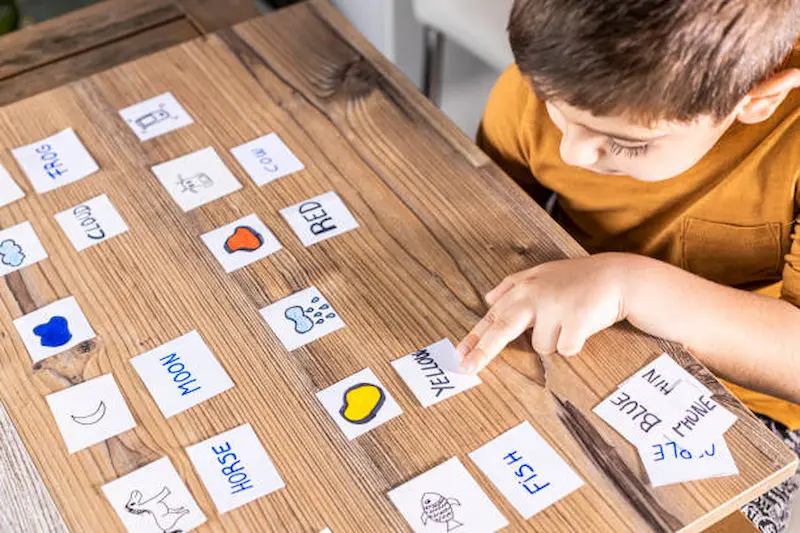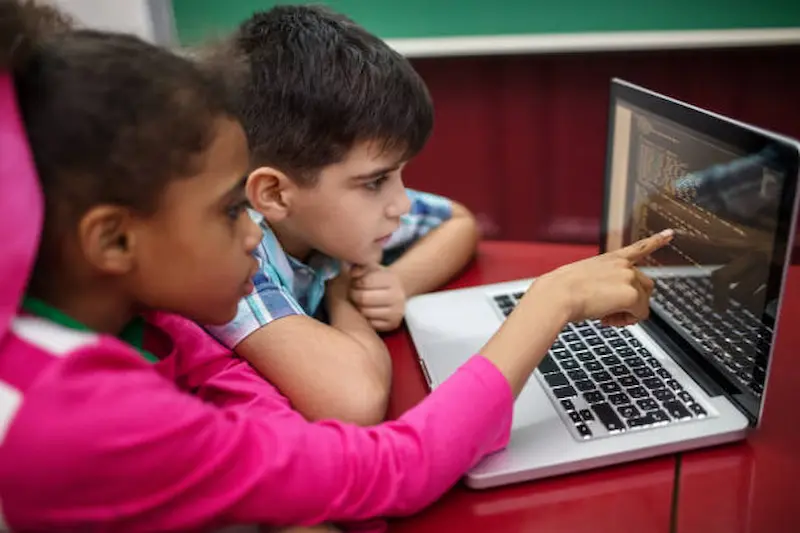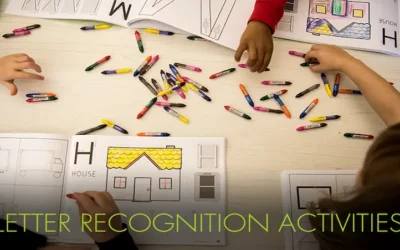Educational games refer to interactive activities designed to impart knowledge and skills in a playful manner, engaging children in a dynamic learning process. These games play a crucial role in children’s development by promoting cognitive skills, problem-solving abilities, and subject-specific knowledge. Beyond academic benefits, educational games enhance social interaction, critical thinking, and creativity, providing a holistic approach to learning that is both enjoyable and effective in fostering well-rounded development in children.
In this blog, we will delve into the transformative impact of educational games, exploring their role in cultivating essential skills, fostering a love for learning, and providing a dynamic approach to education.
Table of contents
- Criteria for Selecting Educational Games
- 1. ABC Adventure
- 2. Math Mastermind
- 3. Science Sleuths
- 4. Geography Explorer
- 5. History Heroes
- 6. Creative Coding
- Benefits of Educational Gaming
- Potential Risks and How to Mitigate Them
- A Balanced Approach to Kids’ Educational Gaming
- Conclusion
- Frequently Asked Questions ( FAQs )
Criteria for Selecting Educational Games

A. Age-appropriateness and Content:
Select educational games for kids that align with the age group’s cognitive abilities and present content suitable for educational growth. Tailoring the content to the developmental stage ensures engagement and effective learning. Whether it’s interactive puzzles, language games, or math challenges, incorporating educational elements into playtime can foster a love for learning in children.
B. Skill Development and Learning Objectives:
Priorities games that have clear learning objectives, fostering skill development. Whether it’s critical thinking, problem-solving, or subject-specific knowledge, games should contribute meaningfully to educational goals.
C. Safety and Parental Controls:
Ensure a secure gaming environment by choosing games with robust safety features. Effective parental controls are essential, allowing guardians to monitor and control the gaming experience, guaranteeing a safe and enriching learning journey for children.
1. ABC Adventure

“ABC Adventure” is an engaging educational game that takes young learners on an interactive exploration of the alphabet. With vibrant graphics and intuitive gameplay, it offers a stimulating environment for children to discover the wonders of language.
A. Focus on Alphabet and Early Literacy: The game centers on cultivating early literacy skills, emphasizing letter recognition, phonics, and foundational language abilities. Through a series of interactive challenges, it encourages a playful and effective approach to learning the ABCs.
Additionally, incorporating typing games for kids into the mix enhances not only their literacy skills but also introduces them to the essential skill of typing.
B. Age Range and Suitability: Tailored for preschoolers and early elementary students, “ABC Adventure” is specifically designed to cater to the developmental needs and interests of children in their formative years, making it an ideal and age-appropriate tool for early literacy development.
2. Math Mastermind

Immerse young minds in the world of numbers with “Math Mastermind.” This game offers a dynamic platform for learning and practising mathematics through engaging challenges and puzzles for kids. With its user-friendly interface and visually appealing design, it transforms traditional math exercises into an exciting adventure of problem-solving.
A. Mathematics and Problem-Solving Skills: “Math Mastermind” focuses on honing essential mathematical and problem-solving skills. From basic arithmetic to more complex calculations, the game stimulates critical thinking, encouraging players to apply mathematical concepts in a fun and interactive way.
B. Targeted Age Group and Complexity Levels: Geared towards upper elementary and middle school students, “Math Mastermind” adjusts its complexity levels to match the evolving mathematical proficiency of players, providing a challenging yet supportive environment for skill development.
3. Science Sleuths
Step into the captivating world of discovery with “Science Sleuths.” This interactive game invites young learners to become scientific detectives, exploring a virtual realm filled with intriguing experiments and mysteries. “Science Sleuths” not only imparts knowledge but also instills a love for science in kids, as they actively participate in hands-on activities and engage with an exciting storyline. By incorporating science for kids into gameplay, this educational experience goes beyond traditional methods, fostering curiosity and a deeper understanding of scientific principles in an entertaining and interactive manner.
A. Exploration of Scientific Concepts: “Science Sleuths” is designed to foster a love for science by encouraging exploration and experimentation. Players delve into various scientific concepts, from biology to physics, honing their analytical and investigative skills in a playful environment.
B. Age-Appropriate Content and Parental Involvement: Tailored for upper elementary and middle school students, the game ensures age-appropriate content. Parental involvement is encouraged through progress tracking and discussion prompts, creating a collaborative learning experience that extends beyond the screen.
4. Geography Explorer

Embark on a global adventure with “Geography Explorer,” a game that combines educational value with thrilling gameplay. With interactive maps, quizzes, and challenges, it provides a comprehensive exploration of world geography. The game’s features ensure an immersive experience, keeping players engaged in the learning process.
A. Geography and Global Awareness: “Geography Explorer” aims to enhance geographical knowledge and global awareness. Players traverse continents, learn about diverse cultures, and develop map-reading skills, fostering a deeper understanding of the world around them.
B. Educational and Entertainment Balance: Striking a perfect balance between education and entertainment, the game makes learning geography enjoyable. It transforms potentially dry information into an exciting quest for knowledge, ensuring that players find the perfect equilibrium between fun and educational value.
5. History Heroes
History Heroes offers engaging educational games that bring history to life, making learning a fun and interactive experience. With a focus on key historical figures and events, these games inspire curiosity and knowledge in players of all ages. Through engaging narratives and interactive challenges, players embark on a journey through different eras, encountering historical figures and events in a dynamic virtual setting.
B. Historical Knowledge and Critical Thinking: “History Heroes” focuses on building a strong foundation of historical knowledge while fostering critical thinking skills. Players analyse historical scenarios, make decisions, and witness the consequences, creating a hands-on approach to learning about the complexities of the past.
C. Age Recommendations and In-Game Interactions: Recommended for middle school and high school students, “History Heroes” tailors its content to suit age-appropriate historical contexts. In-game interactions promote active learning, encouraging players to explore and comprehend the intricacies of history.
6. Creative Coding

Unleash the power of programming with “Creative Coding,” a game designed to ignite the passion for coding in young minds. This interactive platform introduces coding principles through imaginative challenges and projects, making learning a dynamic and enjoyable experience. Incorporating coding games for kids into educational pursuits not only cultivates valuable technical skills but also nurtures creativity and problem-solving abilities.
B. Introduction to Programming Concepts: “Creative Coding” serves as a gateway to programming concepts. From basic syntax to algorithmic thinking, the game demystifies coding, empowering players to express their creativity through the language of technology.
C. Age Suitability and Learning Curve: Tailored for late elementary and middle school students, “Creative Coding” ensures age-appropriate content. The learning curve is structured to accommodate beginners, fostering a gradual progression from fundamental coding concepts to more advanced programming skills.
Benefits of Educational Gaming
A. Cognitive and Academic Development:
Educational gaming is a powerful tool for enhancing cognitive skills and academic proficiency. Through interactive challenges and problem-solving, children develop critical thinking skills for kids, strategic planning, and subject-specific knowledge. These games provide a dynamic platform for young minds to engage in activities that stimulate curiosity and analytical thinking, fostering a love for learning while honing essential cognitive abilities that extend beyond the virtual realm.
B. Fostering a Love for Learning:
These games create a positive association with learning, making education enjoyable. By merging fun with fundamental concepts, educational gaming nurtures a lifelong love for acquiring knowledge, motivating children to explore and understand the world around them.
C. Entertainment with a Purpose:
Educational games offer entertainment with a purpose, ensuring that screen time contributes meaningfully to a child’s development. This fusion of enjoyment and education makes learning a dynamic and engaging experience.
Potential Risks and How to Mitigate Them

Online safety and privacy are paramount considerations for children engaging in educational games. Effective mitigation involves teaching kids about internet safety, emphasising the importance of not sharing personal information. Additionally, it’s essential to foster leadership skills for kids by empowering them to make responsible decisions online. Managing screen time is crucial; set reasonable limits to balance gaming with other activities. Utilise parental controls and maintain active supervision to ensure a secure online environment, empowering parents to navigate potential risks and foster a safe and enriching gaming experience for their children.
A Balanced Approach to Kids’ Educational Gaming
Encourage a balanced approach to children’s educational gaming by blending interactive digital experiences with traditional learning methods. Ensure a diverse selection of learning games for kids that align with age-appropriate content, fostering cognitive development. Incorporate offline activities and discussions to complement online gaming, promoting a holistic learning environment.
By maintaining a balance, children not only acquire valuable knowledge through educational games but also cultivate essential social and critical thinking skills for a well-rounded educational journey.
Conclusion
Educational games, designed to entertain and educate simultaneously, encompass activities that promote learning in an engaging format. These games offer numerous benefits for children’s development, including the enhancement of cognitive skills, critical thinking, problem-solving abilities, and subject-specific knowledge. By making learning enjoyable, educational games create a positive and interactive environment, fostering a love for learning while supporting holistic development in children.
To get your hands on more such articles, educational content, and free resources on coding for kids, robotics courses, game development, etc., check out the BrightCHAMPS Blog Page now!
Frequently Asked Questions ( FAQs )
A1. The educational games cater to various age groups, spanning from preschoolers to high school students.
Q2. Do these games require an internet connection to play?
A2. It depends on the specific game; some may require an internet connection for certain features, while others can be played offline.
Q3. How can I ensure my child’s safety while playing educational games online?
A3. To ensure your child’s safety, monitor game content, utilize parental controls, and engage in open communication about online activities.
Q4. Are there any costs associated with these educational games, such as in-app purchases?
A4. Costs vary; some games may be free, while others could involve one-time purchases or in-app transactions.
Q5. What skills and subjects can my child learn from these educational games?
A5. These educational games cover a range of skills and subjects, including literacy, math, science, geography, history, critical thinking, and even coding, offering a well-rounded learning experience.


 We are an army of educators and passionate learners from BrightChamps family, committed to providing free learning resources to kids, parents & students.
We are an army of educators and passionate learners from BrightChamps family, committed to providing free learning resources to kids, parents & students.
























